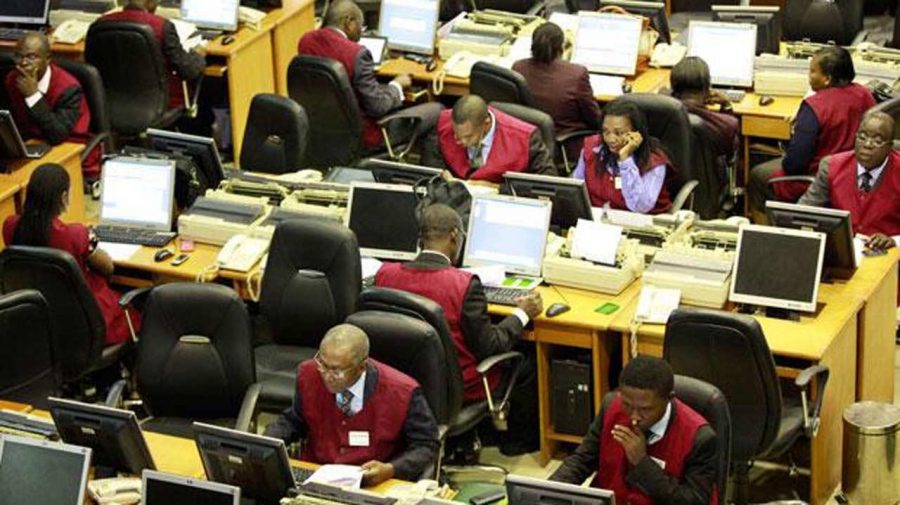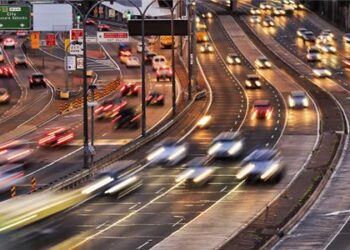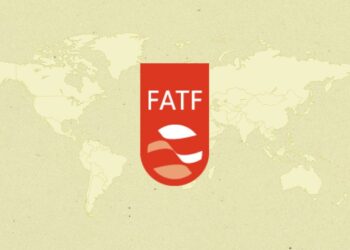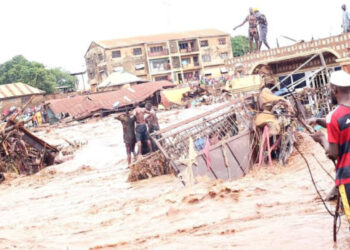The stock market like most advanced form of trading platforms are not immune to ups and downs. During the boom years the stock market records massive gains as the value of stocks rise pushing indexes around the world higher. During the bust cycle values of stock prices start to depreciate as investor’s flee the stock market for better returns elsewhere. Some analyst suggest a boom and bust cycle in the stock market occurs every 15-20yrs. As a passive investor, you do not want to be caught up in all of this and have all your investments wiped out overnight.
READ: Only 2.43 million Bitcoins left for mining
Whilst no one in particular knows when a stock market crash will occur, it is instructive to know that they are typically preceded by a stock market boom. Certain signs help us make predictions of a crash and we shall examine some of them;
Influx of cheap credit
As mentioned stock market crashes are typically preceded by a boom. One of the factors that fuel stock market booms are an influx of cheap loans. When I say cheap, I don’t necessarily mean interest rates alone but also the ability to obtain loans will little or no due diligence.
READ: Why you should avoid investing long term in Nigeria’s stock market
Before the crash of 2009 a lot of Nigerians took out massive margin loans which they invested in the stock market and then gave banks the shares of those same companies as collateral. This hiked up stock prices due to the rising demand precipitating into a market crash that saw many lose their investments. Avoid the market when it is apparent that everyone can easily take out a bank loan to invest in shares.
[Read Also: Here’s how to invest in US stocks from Nigeria]
Asset Bubbles
Cheap credit causes asset bubbles which end up busting. An asset bubble is an artificial rise in the price of stocks without any fundamental justification for it. When share prices start to rise without a meaningful increase in the intrinsic value of the company it is a sign that a bubble is being consummated.
READ: Why it makes sense to invest in foreign equities from Nigeria
In the crash of 2009/2010 a lot of stocks with very poor financial results still ended up trading at high P.E ratios that do not underline their financial fundamentals. This is mainly a result of herd mentality. During a bubble nearly all shares witness a rise in market prices. Like Warren Buffet says, he flees the stock market when others are greedy and greedy when others are fleeing.
READ: You can now buy Bitcoin, Ethereum, Uniswap through Apple Pay
Economic Downturns
Since a stock market is subset of a larger economy it is only normal for it to be affected by the state of the wider economy. During an economic downturn consumer demand is very low as people tend to live from salary to salary. They do not have any disposable income to invest, preferring only to spend money on essentials. Downturns are a recipe for stock market crash as the waning demand for investment in stocks send values tumbling down.
READ: Bitcoin is highly volatile, illiquid, supports digital Euro – European Central Bank
High Public Debt
When a country borrows too much it ends up using most of its tax revenue for servicing those debts. The effect of this can be very dangerous if the economy is in a bad shape and the country can no longer service its debts. By not servicing its debts, the company can no longer borrow again therefore leaving important economic developmental goals unattended.
[Read Also: Too many side hustle ideas? Here are 11 questions to help you choose your best option]
This then hampers economic growth as austerity sets in and businesses start to lose money. As businesses lose money the government now finds it even harder to earn money from taxes. That is why the price of oil is very crucial to Nigeria as that oil revenue is about 80% of our revenue as a nation. A fall in oil prices is a sign that a stock market crash may occur.
READ: PayPal, Square make top 10 list of most valuable U.S banks
Political Instability
Investors usually take a cautious turn when during political crisis or instability. The stock market hates uncertainty, and political instability like no other can bring about that instability. Investors typically pull their money out in droves during political instability as was the case during the Arab Spring. The Egyptian stock market crashed and till now is still struggling to recover.
READ: UBA, GTBank, Zenith Bank tumble, Bears take a grip on Nigerian Stocks
Inflow of hot money
Hot money is a cruel term for foreign portfolio investments that only finds its way in liquid markets. Being a global community, foreign investors in search of high returns channel funds running into billions of naira into the Nigerian stock exchange. If not controlled, these money can help build an artificial bubble creating an impression that out market is doing well.
When the market gains, the foreign investors pull out their monies in droves as part of profit taking leaving the market in shambles and local investors seeing values virtually wiped out. An example of this was the Asian financial crisis of the 90’s. The Nigerian stock exchange regularly publishes a list of inflows into the stock market which every investor should read judiciously.
READ: Union Diagnostics calls shareholders to update records with company registrars
Increasing Market Activity
Another major sign of that a market crash may just be around the corner is when there is a sudden boom in market activity. For example, you will start to see lots of private placements, mergers and acquisitions, corporate takeovers etc. More companies will also approach the market for public offers and IPO’s even when they have no cogent reason for doing so. Companies will take the advantage of the boom to raise money at cheap rates and end up using it to finance unproductive ventures
[Read Also: NSE appoints 2face as its ‘Good Cause Ambassador’]


























Thanks for the heads up
Please don’t see me as a pessimist, but if we are to follow the tracks of your articles and relating information so far regarding the Nigerian stock market, we might be heading for a bad storm or possibly a crash in the Nigerian stock market. This is my reason:
Most of the non-foreign portfolio in the Nigerian stock market are owned by Nigerian politicians, political sponsors and a few big guys in the government. Now that we are approaching the 2015 elections, we might start experiencing some great amount of sell off (Money is needed to facilitate political campaigns) , which might send negative signals to the market. Scaring off short term investors and possibly foreign investors as well.
Yea. Thats is true. Most of stocks in Nigeria are truely representing their fair value plus the fact that equity investment in the stock exchange is unevenly distributed. Imagine a market with 60% foreign portfolio holding, that is a huge risk.